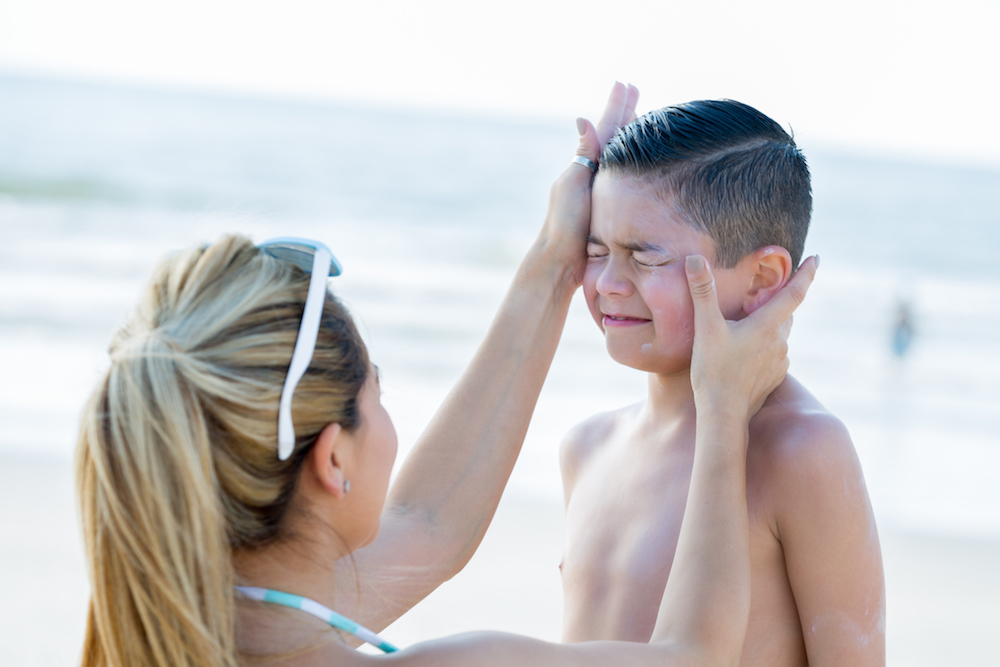Topics

Image Source
It’s heating up outside – warmer weather is here, and with it comes a lot of sunshine and a host of unwanted insects. Your children can still enjoy being outdoors this summer, though, and you can keep their skin safe from the sun's harmful ultraviolet (UV) light and insect bites.
Sun protection
When the sun is out, the strongest UV radiation occurs between 10 a.m. and 3 p.m. If you have children with light-colored hair and/or fair skin, they’ll have the least amount of natural protection from the sun. UV rays can damage the skin, cause wrinkling and premature aging, and can even contribute to skin cancer further down the road. If you consider the following precautions, you can keep your child’s skin protected now and into the future.
- Wear protective clothing with a tight fabric weave.
- Apply sunscreen to exposed areas of skin, including the face.
- Wear a wide-brimmed hat and sunglasses.
- Seek shade when possible.
- Use lip balm.
If your child is younger than 6 months old, they should be kept away from direct sunlight. If this isn’t possible, it’s OK to lightly apply sunscreen to the face and the back of the hands.
It’s important to wear sunscreen, which is made of chemical agents such as titanium dioxide or zinc dioxide meant to protect our skin from UV light. Many products won’t block UVA radiation, so it’s recommended to use a broad-spectrum (UVA/UVB) sunscreen of SPF15 or higher.
Sun protection factor (SPF) measures protection from the sun. For instance, skin covered with a sunscreen of SPF30 will take 30 times longer to burn than it would without protection.
You can apply a generous amount of sunscreen to your child’s skin 15-30 minutes before going outside. Be sure to reapply sunscreen every two hours and after swimming. If your child will be swimming, waterproof sunscreen products are recommended.
Insect protection
You can protect your child’s skin from biting insects in many ways. First, avoid going outside during dawn or dusk, which is when mosquitoes are more active, alongside areas with standing water. Put your child in protective clothing, and use insect repellant.
The most effective insect repellant products for children should contain DEET, a common active ingredient providing protection against mosquitoes, ticks, fleas, chiggers, leeches and many biting insects. DEET is safe for children older than 2 months of age in product concentrations between 10-30 percent, which should protect the skin for two-six hours.
Products combining DEET with sunscreen are not recommended. It’s recommended to always apply sunscreen first, then insect repellant second. Don’t apply insect repellant to the hands, near the eyes, or close to any open cuts or wounds.
If you take these simple precautions, you can rest assured your child’s skin will be protected and remain healthy while they’re enjoying being outside this summer.